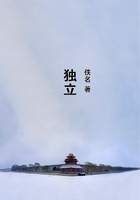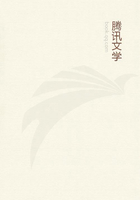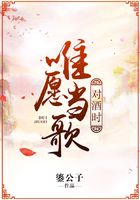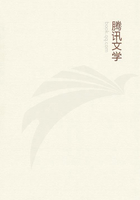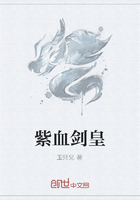To pursue the further traces of the influence of Chaucer through such a literary aftergrowth as the younger Fletchers, into the early poems of Milton, would be beyond the purpose of the present essay. In the treasure-house of that great poet's mind were gathered memories and associations innumerable, though the sublimest flights of his genius soared aloft into regions whither the imagination of none of our earlier poets had preceded them. On the other hand, the days have passed for attention to be spared for the treatment experienced by Chaucer in the Augustan Age, to which he was a barbarian only to be tolerated if put into the court-dress of the final period of civilisation. Still, even thus, he was not left altogether unread; nor was he in all cases adapted without a certain measure of success. The irrepressible vigour, and the frequent felicity, of Dryden's "Fables" contrast advantageously with the tame evenness of the "Temple of Fame," an early effort by Pope, who had wit enough to imitate in a juvenile parody some of the grossest peculiarities of Chaucer's manner, but who would have been quite ashamed to reproduce him in a serious literary performance, without the inevitable polish and cadence of his own style of verse. Later modernisations--even of those which a band of poets in some instances singularly qualified for the task put forth in a collection published in the year 1841, and which, on the part of some of them at least, was the result of conscientious endeavour--it is needless to characterise here. Slight incidental use has been made of some of these in this essay, the author of which would gladly have abstained from printing a single modernised phrase or word--most of all any which he has himself been guilty of re-casting. The time cannot be far distant when even the least unsuccessful of such attempts will no longer be accepted, because no such attempts whatever will be any longer required. No Englishman or Englishwoman need go through a very long or very laborious apprenticeship in order to become able to read, understand, and enjoy what Chaucer himself wrote. But if this apprenticeship be too hard, then some sort of makeshift must be accepted, or antiquity must remain the "canker-worm" even of a great national poet, as Spenser said it had already in his day proved to be of Chaucer.
Meanwhile, since our poetic literature has long thrown off the shackles which forced it to adhere to one particular group of models, he is not a true English poet who should remain uninfluenced by any of the really great among his predecessors. If Chaucer has again, in a special sense, become the "master dear and father reverent" of some of our living poets, in a wider sense he must hold this relation to them all and to all their successors, so long as he continues to be known and understood. As it is, there are few worthies of our literature whose names seem to awaken throughout the English-speaking world a readier sentiment of familiar regard; and in New England, where the earliest great poet of Old England is cherished not less warmly than among ourselves, a kindly cunning had thus limned his likeness:--An old man in a lodge within a park;
The chamber walls depicted all around With portraiture of huntsman, hawk and hound, And the hurt deer. He listeneth to the lark, Whose song comes with the sunshine through the dark Of painted glass in leaden lattice bound;He listeneth and he laugheth at the sound, Then writeth in a book like any clerk.
He is the poet of the dawn, who wrote The Canterbury Tales, and his old age Made beautiful with song; and as I read I hear the crowing cock, I hear the note Of lark and linnet, and from every page Rise odours of ploughed field or flowery mead.
GLOSSARY.
Bencite = benedicite.
Clepe, call.
Deem, judge.
Despitous, angry to excess.
Digne, fit;--disdainful.
Frere, friar.
Gentle, well-born.
Keep, care.
Languor, grief.
Meinie, following, household.
Meet, mate (?), measure (?).
Overthwart, across.
Parage, rank, degree.
Press, crowd.
Rede, advise, counsel.
Reeve, steward, bailiff.
Ruth, pity.
Scall, scab.
Shapely, fit.
Sithe, time.
Spiced, nice, scrupulous.
Targe, target, shield.
Y prefix of past participle as in, y-bee = bee(n).
While, time; to quite his while, to reward his pains.
Wieldy, active.
Wone, custom, habit.
INDEX.
"A.B.C." ("La Priere de Notre Dame").
"Adam" (Chaucer's Scrivener).
"African."
Albert of Brescia.
"Alcestis."
"Alchemist" (Ben Jonson).
Aldgate.
Alfred, King.
Anne, Queen.
"Antiquary Moth" (Cartwright).
"Ariadne."
Aristophanes.
"Art of English Poesy" (Puttenham).
"Arviragus."
"Assembly of Fowls or Parliament of Birds."
Astrology.
Bailly, Master Harry. See "Host."
"Ballad of Sir Thopas."
"Ballad sent to King Richard."
Balle, John.
Balzac.
Barklay.
Benedictines.
Berkeley, Sir Edward.
Berners, Lady Juliana.
Bible, Chaucer's knowledge of.
Black Friars.
Black Prince.
Blake, William.
Blanche, Duchess of Lancaster.
Boccaccio.
Boethius.
Bohemia.
"Book of Consolation and Counsel" (Albert of Brescia).
"Book of the Duchess."
"Book of the Leo."
Brembre, Sir Nicholas.
Bretigny, Peace of.
Brigham, Nicholas.
"Bukton."
Burley, Sir John.
Burns, Robert.
Byron.
Cambridge.
"Canace."
"Canon Yeoman's Tale."
The "Canon's Yeoman."
"The Canon."
Canterbury.
Canterbury Pilgrims.
"Canterbury Tales," Chaucer's greatest work.
conjecture as to the composition of.
references to in Prologue to "Legend of Good Women."characters in.
framework of.
what is Chaucer's obligation to Boccaccio.
popular style of.
language of.
sources of.
Chaucer's method of dealing with his originals.
the two prose tales.
reference to the condition of the poor.
woman in the.
supposed reference to Gower.
Lydgate's Supplements to.
vogue of the, with Elizabethan and Jacobean dramatists.
"Carpenter."
Cartwright.
Caxton.
"Ceyx and Alcyone," the tale of.
Charles IV, Emperor.
Charles V, King of France.
Chaucer, Agnes (Chaucer's mother).
"Chaucer's Dream."

